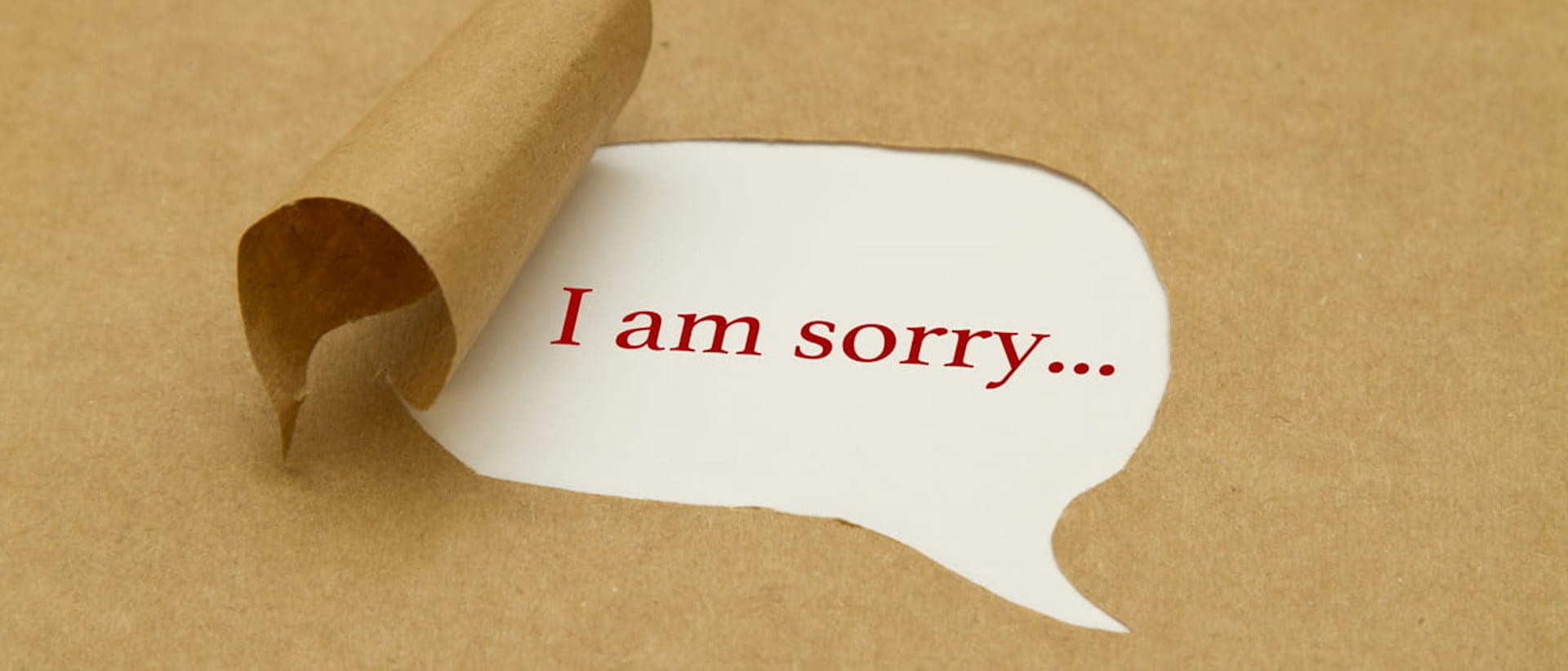MDDUS advisers are often asked whether an apology to a patient amounts to an admission of guilt that can be used against you.
We would like to reassure our members that there are important reasons why an apology can and should be made. Indeed, doing so is seen as a positive in regulatory and complaint cases, and we will continue to offer members our full support in this regard.
Duty of candour
There is a professional duty of candour to be open and honest with patients. This includes offering a suitable apology when things go wrong and, in some circumstances, when there has been a near miss.
From a regulatory perspective, the GMC states that doctors must be “open and honest with patients if things go wrong” and that they should offer an apology (Good medical practice, par 55). Failure to do so may in itself result in disciplinary action and could, depending on circumstances, be viewed as evidence of a lack of insight by a doctor.
There is also a statutory duty of candour, which applies to healthcare providers rather than individuals and is monitored by systems regulators such as the Care Quality Commission and Healthcare Improvement Scotland.
MDDUS advice is clear that apologising when things go wrong is an essential part of practice and can assist in maintaining good patient relationships.
Legal status of an apology
Joint guidance by the GMC and NMC on the professional duty of candour is clear that apologising to a patient does not mean that you are admitting legal liability for what has happened. The guidance offers pointers on how to approach ‘saying sorry’ in order for an apology to be truly meaningful to the patient.
In Scotland, the Apologies (Scotland) Act 2016 sets out a specific legal framework which is intended to encourage a social and cultural change in attitude towards giving apologies by providing legal certainty that an apology cannot be used in later civil proceedings as evidence of admission of liability.
A provision based on the Scottish Act was envisaged for England and Wales in the form of the Apologies Bill in 2021, but this legislation did not progress through the parliamentary process to become law. That said, it is worth noting that during the passage of the Scottish legislation, it was argued that the legal status of an apology was already sufficiently clear from existing legislation and guidance. The same can certainly be said to be true of the position in England and Wales. In the context of clinical negligence claims, NHS Resolution have made clear that they will never refuse cover on a claim because an apology has been given.
Apologies in complaints handling
There is evidence to suggest that a sincere apology can play an important role in the early resolution of complaints. Analysis of reports from UK health ombudsman services shows that a common theme in final stage complaint investigations is the complete absence of any acknowledgement of errors or mistakes made, including the absence of an apology by service providers.
Any apology should be clearly documented in the clinical record and, where appropriate, accompanied by an explanation of what has occurred together with any agreed remedial actions designed to prevent a recurrence.
How to say sorry
When a patient has suffered some form of loss or harm because of a service failure, an apology can address four areas, sometimes referred to as the 4R’s:
- A clear expression of regret, which shows empathy and acknowledges the effect on the person.
- Acceptance of responsibility for what has occurred.
- A clear explanation of what happened (the reason).
- Details of any measures taken to rectify the situation or prevent it from happening again.
Mean what you say. A forced or insincere apology will likely be picked up by the other person and may inflame the situation.
Don’t qualify. Beware of the ‘qualified apology’ that may use language like: “I’m sorry, if…” or “I’m sorry, but…”. They represent an apology of sorts, but can appear that you are questioning the individual’s legitimate right to raise a concern.
Don’t apologise on someone else’s behalf. The patient may simply feel fobbed off and end up unhappier than before. From a professional viewpoint, imagine how you would feel if you found out a colleague was apologising on your behalf for something you were alleged to have done. The GMC guidance makes clear that an apology should be issued by the most appropriate team member.
Make it personal. A genuine apology using the words “I am sorry...” is better than using third-party terms such as “the team is sorry” or more complicated or ambiguous language.
Expression of regret. Clinicians often worry about how to phrase an apology for fear it may be interpreted as an admission of liability. Consider framing your apology as a sincere expression of regret, for example:
- I am sorry you are dissatisfied/unhappy/upset about…
- We are sorry to have learned that…
- I’m sorry this has happened…
NHS Resolution has helpful advice in its downloadable resource Saying sorry.
MDDUS is here to support our members – contact advice@mddus.com for more advice.
Key points
- A genuine and sincere apology can be framed as an expression of regret and is not the same as an admission of liability.
- Apologies can play a positive role in complaints handling and regulatory cases, as well as promoting healthy patient relationships.
- Regulatory guidance requires that health professionals must be open and honest with patients if things go wrong and supports clinicians in making an apology where appropriate.
- MDDUS will continue to offer members our full support in making meaningful apologies where they are indicated.
This page was correct at the time of publication. Any guidance is intended as general guidance for members only. If you are a member and need specific advice relating to your own circumstances, please contact one of our advisers.
Save this article
Save this article to a list of favourite articles which members can access in their account.
Save to library


